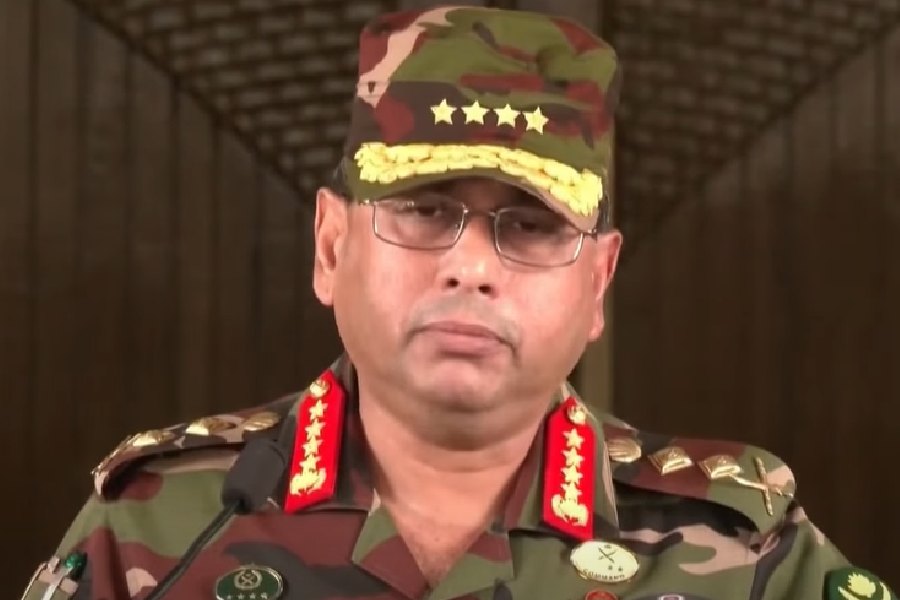The Bangladesh Army chief has said he is in favour of holding elections by the end of this year in what many believe is a notice served to the unelected interim government headed by Nobel laureate economist Mohammad Yunus as chief advisor.
“Bangladesh needs political stability. This is only possible through an elected government, not by unelected decision-makers,” General Waker-Uz-Zaman, Bangladesh’s chief of army staff, said at the Officers’ address held Wednesday evening in Dhaka with the chiefs of the air force and the navy by his side, reported the Dhaka newspaper Prothom Alo.
The demand for holding elections at the earliest to elect a democratic government in the trouble-torn country has been growing over the last few months.
The Awami League government, which held power for 15 uninterrupted years under Sheikh Hasina, was overthrown in a popular uprising that started with students’ demonstrations and soon spread to other sections last July.
The movement forced Sheikh Hasina to flee Dhaka and seek shelter in India.
As months rolled on since the tumultuous events of July and August last year, the demand for holding elections at the earliest was pushed to within a year.
Bangladesh is now run by an interim government with Mohammad Yunus as the chief adviser.
“We were not among the audience when General Zaman made his comments. It is better to ask the army,” Shafiqul Alam, press secretary to Yunus, told The Telegraph Online from Dhaka.
A day before General Zaman’s address, Bangladesh Nationalist Party (BNP) general secretary Mirza Fakhrul Islam Alamgir had accused the Yunus administration of deliberately delaying the national election.
“An extremely well-planned conspiracy is on to delay holding of elections. Some people have infiltrated the administration and are trying to take the country to a different direction,” Alamgir said at an event held to commemorate the death anniversary of BNP founder Gen Ziaur Rahman.
Bangladesh’s chief of army staff also expressed displeasure with the army’s involvement in policing.
Soon after the Hasina government was overthrown, a section of the police in Dhaka and other cities and towns of Bangladesh came under attack for their proximity to the ruling Awami League and alleged acts of brutality against citizens; many of them were killed.
Just about two weeks ago the interim government banned all activities of the Awami League.
“The army is meant for defending the nation. Not for policing. We must return to barracks after elections,” General Zaman is reported to have said in his address.
Zaman was also critical of some of the decisions taken by the unelected interim government, like allowing Elon Musk’s Starlink and the Chittagong-Rakhine corridor connecting Bangladesh to Myanmar.
“There will be no corridor. The sovereignty of Bangladesh is not negotiable,” Zaman said, describing the proposal as “risky and sensitive” and underlining that an unelected government could not take this decision. “Only a political government elected by the people can make such decisions.”
He warned the corridor could drag Bangladesh into a proxy war in Myanmar.
Last week, India’s ministry of external affairs had spoken in favour of democratic and inclusive elections at the earliest in Bangladesh. India’s ties with the eastern neighbor took a dip after Hasina’s exit.











